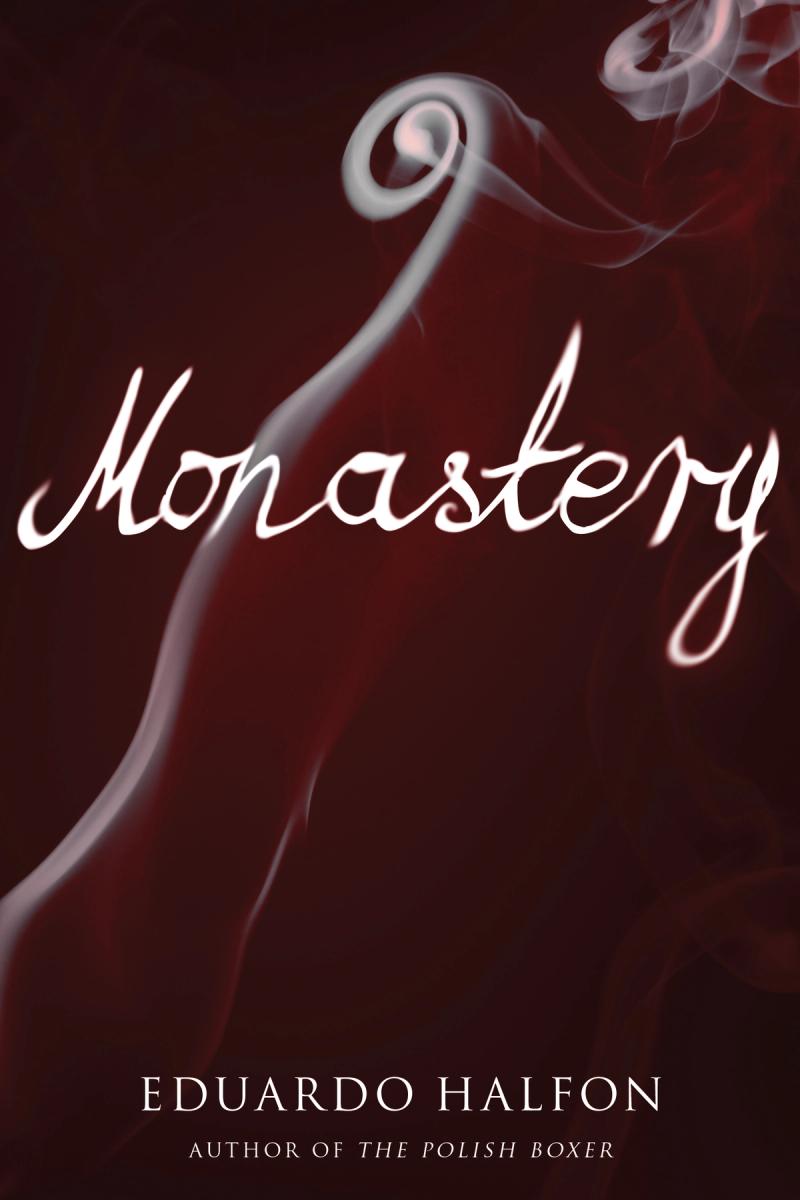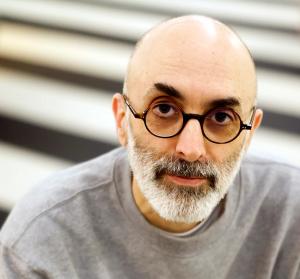A moving, reflective, and humbly resounding work of fiction. . . . Monastery, with its beautiful prose, vibrant imagery, and singular outlook on the abundance of individual and shared experience, deserves to win this year’s Best Translated Book Award. As an ambassador of both worldly wonder and sublime storytelling, Eduardo Halfon’s Monastery, despite its brevity, is truly a marvel.
Monastery
In Monastery, Eduardo Halfon’s eponymous wanderer travels from Guatemalan cities, villages, coffee plantations, and border towns to a private jazz concert in Harlem, a former German U-Boat base on the French Breton coast, and Israel, where he escapes from his sister’s Orthodox Jewish wedding into an erotic adventure with the enigmatic Tamara. His passing encounters are unforgettable; his relationships, problematic. At once a world citizen and a writer who mistrusts the power of language, he is pursued by history’s ghosts and unanswerable questions. He is a cartographer of identity on a compelling journey to an uncertain destination. As he draws and redraws his boundaries, he confronts us with the limitations of our own.
In consultation with the author, Monastery is translated from the Spanish by Lisa Dillman and Daniel Hahn.
Best Translated Book Award Longlist
Reader’s Digest “Great New Book” selection
World Literature Today “Holiday Gift Guide” selection
Jewish Journal “Noteworthy Book for the New Year” selection
Shelf Awareness “World Literature: Booksellers Recommend” selection

Paperback
- ISBN
- 9781934137826
Ebook
- ISBN
- 9781934137833
Read excerpts from Monastery in Shelf Unbound (p. 34); White Review; Words Without Borders; and on the PEN American Center website.
Eduardo Halfon is the author of The Polish Boxer, Monastery, Mourning, Canción, and Tarantula (forthcoming from Bellevue Literary Press in May 2026). He is the recipient of the Guatemalan National Prize in Literature, International Latino Book Award, Edward Lewis Wallant Award, and Berman Literature Prize,among many other honors. A citizen of Guatemala and Spain, Halfon was born in Guatemala City, attended school in Florida and North Carolina, and has lived in Nebraska, Spain, Paris, and Berlin.
visit author page »Praise for Monastery
Monastery, which looks at Guatemala and the world from the divided perspective of a Jew and Guatemalan [displays] a constantly surprising sensitivity, even tenderness toward both worlds and the ways they resonate even when they appear deaf to each other. . . . In the admirable translation by Lisa Dillman and Daniel Hahn, the idiomatic, contemporary American English voice comes across as innate to this cosmopolitan narrator, without losing all its Spanishness.
Call it a confirmation bias. Everywhere I turned this year, I saw a new expression of Arab Jewish identity. The revival seems to be happening across all fields—literature, food, music—yet somehow nobody’s talking about it. . . . Imagine my excitement, then, when I discovered Eduardo Halfon’s new novel, Monastery, in which the conflicted, tragicomic protagonist denies his Arab identity when talking to certain Jews, and his Jewish identity when talking to certain Arabs.
[A] sly, quietly penetrating account of life on the road. . . . One of [Halfon’s] special attributes is never forcing meaning on his experiences. . . . But he’s also great at reversing our initial impressions of people and places. . . . A rising star among Latin writers, Halfon is a lively traveling companion.
In this enigmatic follow-up to Halfon’s lovely The Polish Boxer, readers follow the same narrator as he journeys around Central America, Europe, and Israel. . . . As if slowly filling in negative space, Halfon gradually gives shape to the uneasy relationship he has with his own allegiances and heritage as well as the outsider position he occupies wherever he goes, even within his own country. A subtle work that defies easy categorization in the best way.
— Booklist
[Monastery] is about family and love and confusion, about being together and alone, about identity and all that entails. It’s about having faith in who we are and in who we might be and even in who we (or others) might say we are. It’s about losing that faith or rediscovering it or worrying we’ll never have it. . . . Halfon’s writing is rich . . . beautiful and of course, True.
[Monastery is] filled with the stuff of life. . . . Halfon’s talent is to take these seemingly ‘insignificant’ details and make them immensely human and make the reader think, taking the reader places he/she will not expect to go; and he does it with such grace you can’t help but be pulled along and become immersed in it.
Much like his wispy, smoke-filled covers, Eduardo Halfon’s writing has an ephemeral quality that is both wondrous and intriguing. In Monastery, the same mysterious narrator as in Halfon’s previous work, The Polish Boxer, returns to lead us once again on nomadic travels through time and place.
Written as linked recollections, the stories in Monastery divulge a man who introduces himself not with who he is but through what he cares to know about someone else.
— Todd Wellman, Boswell Book Company (Milwaukee, WI)

